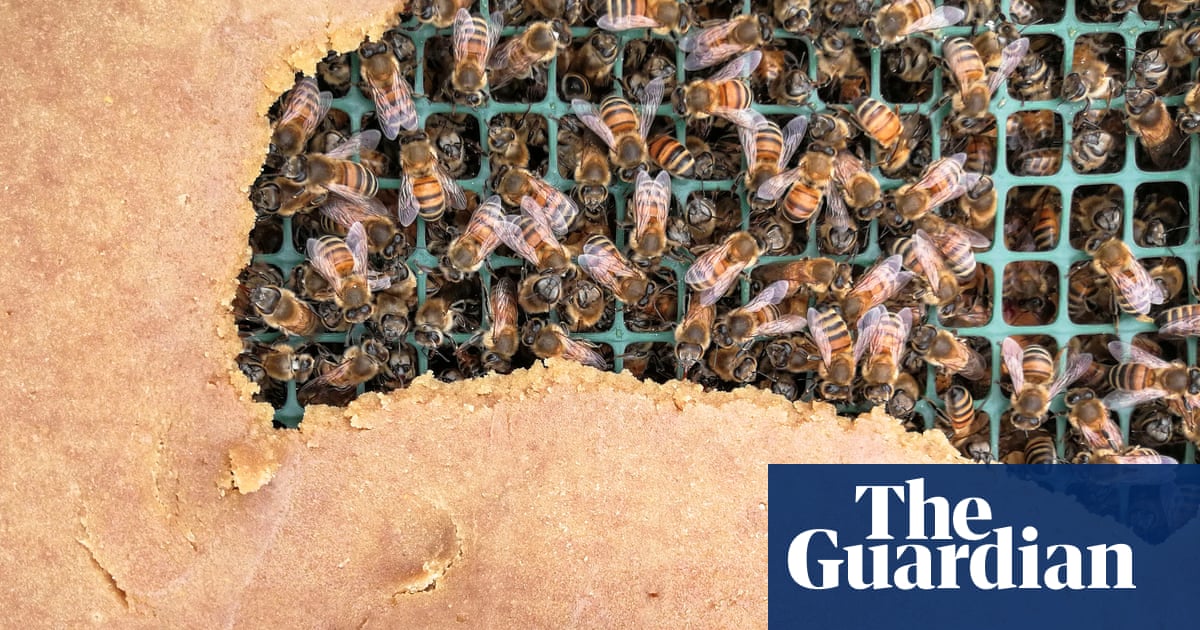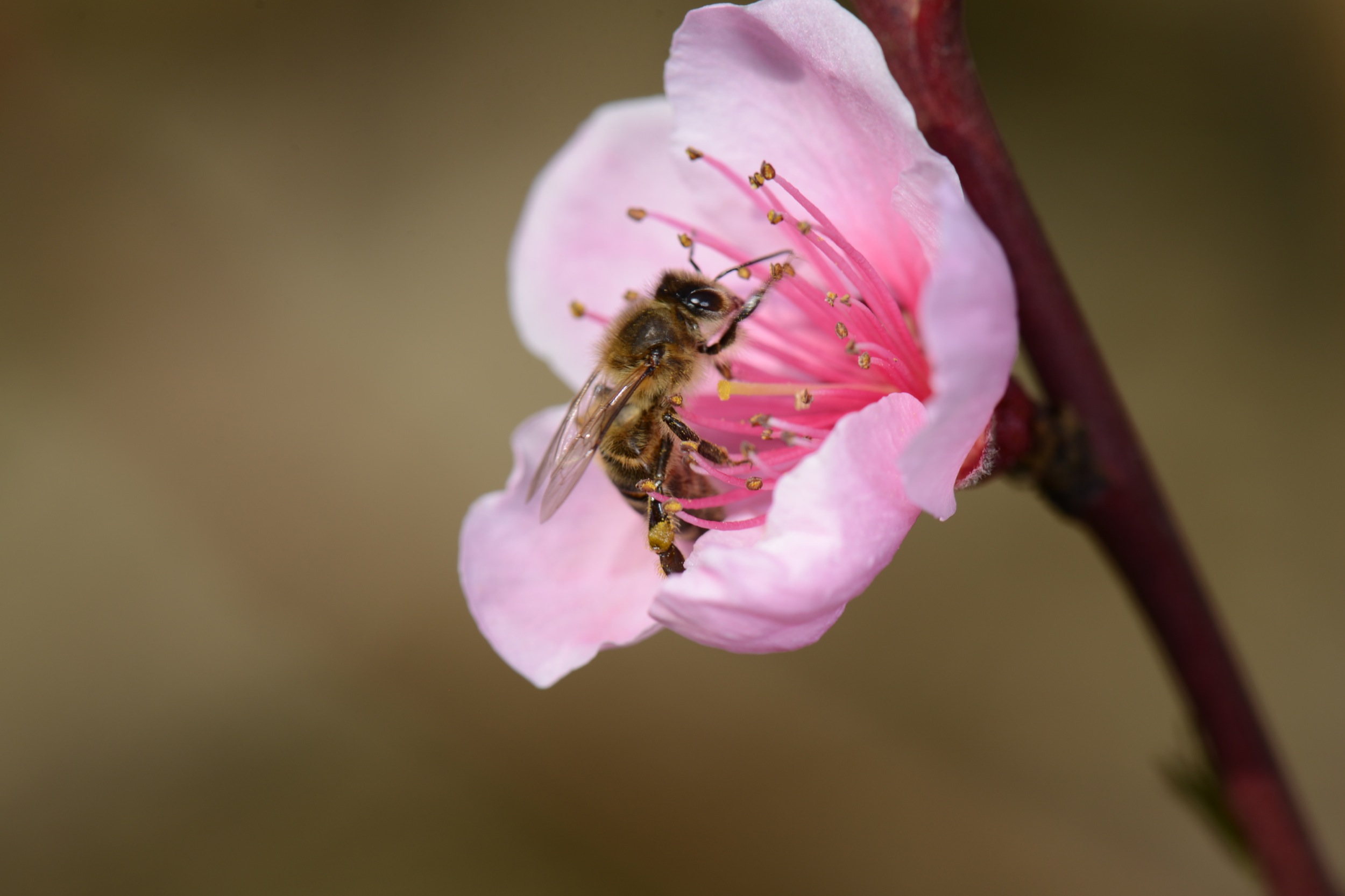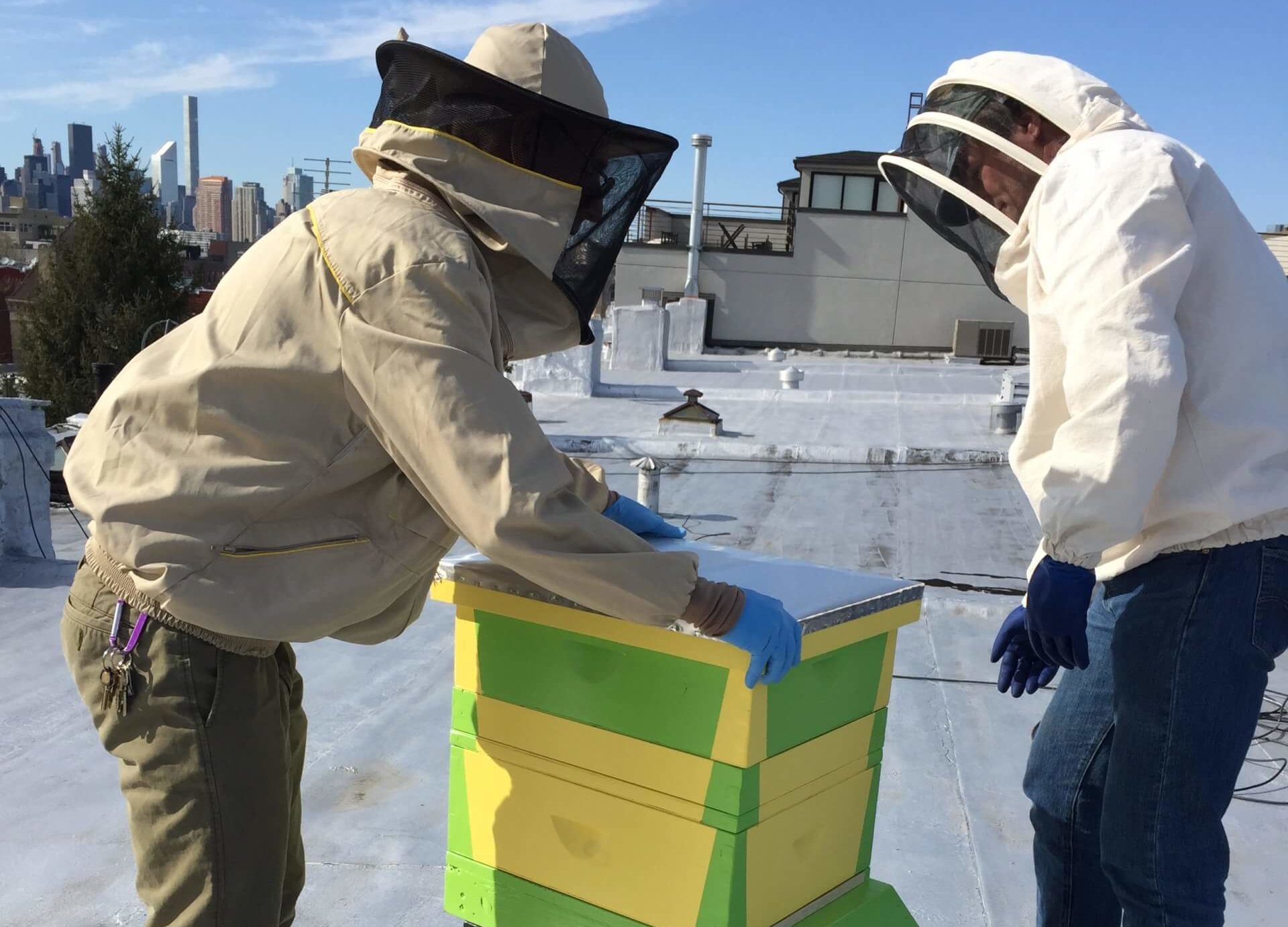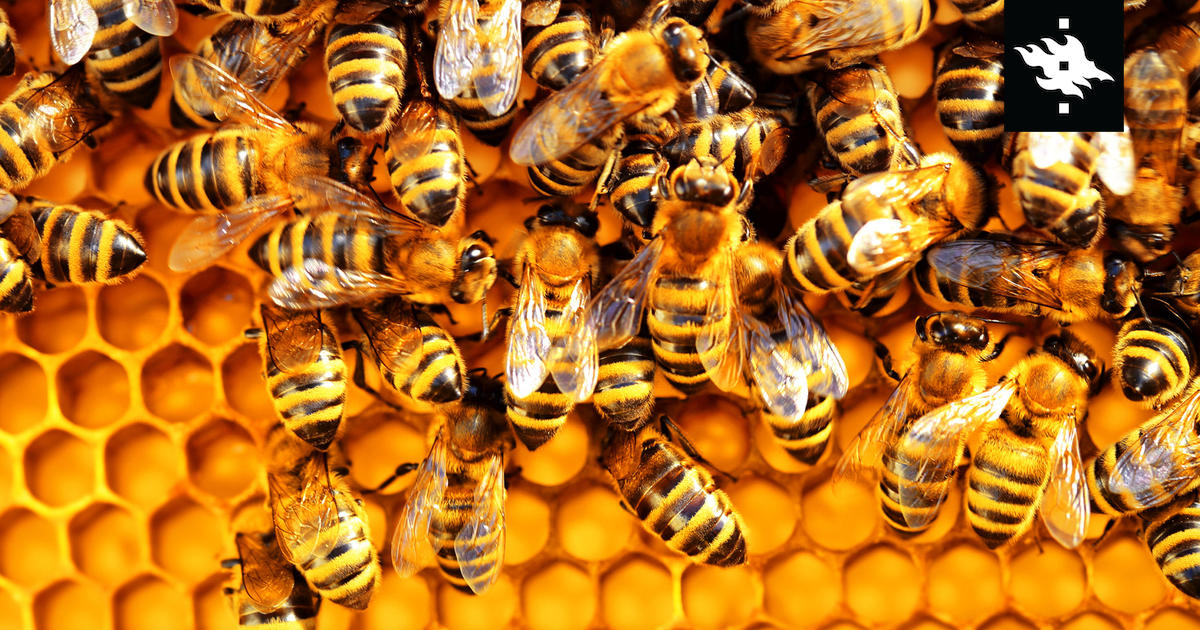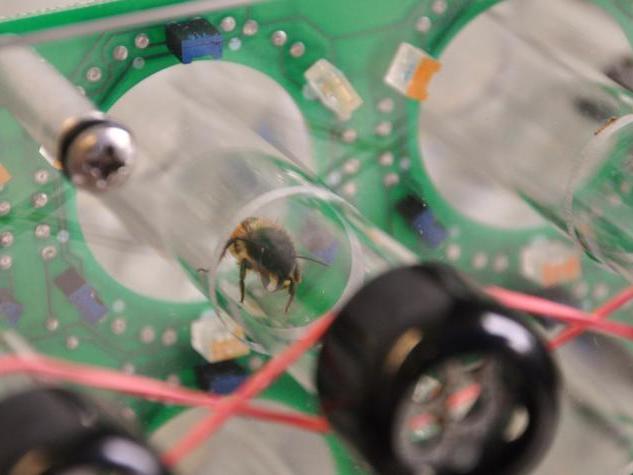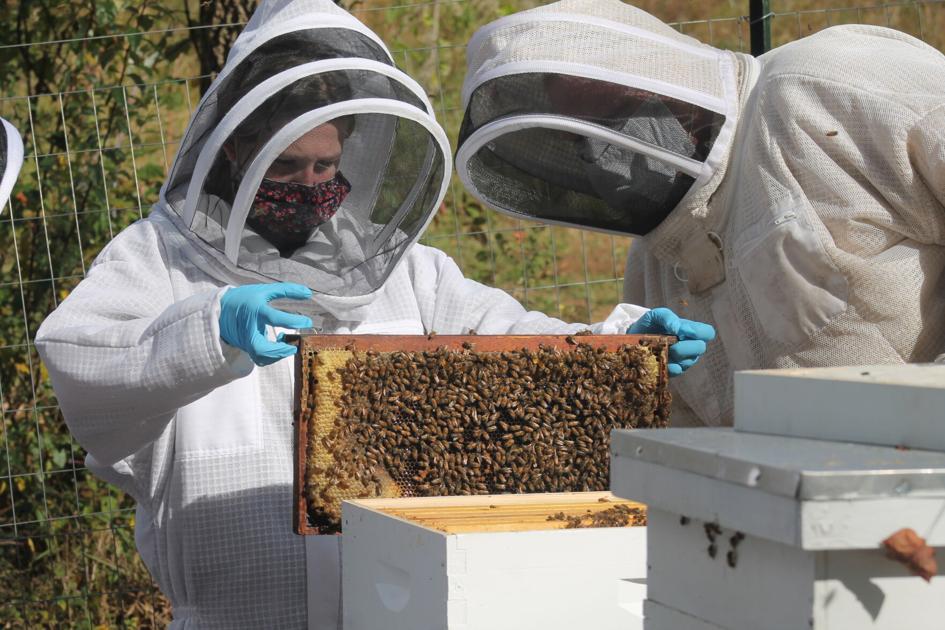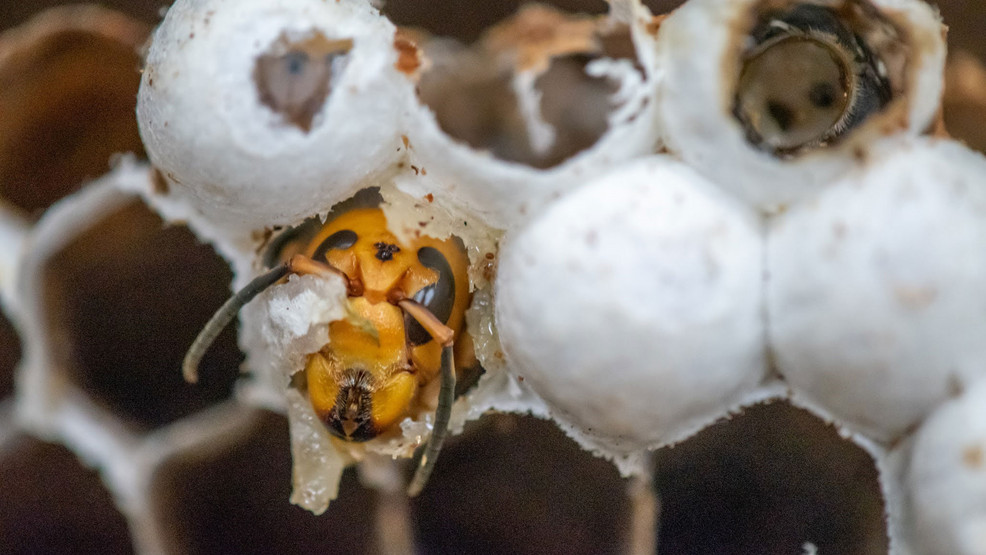 John LaRose Jr.
John LaRose Jr.
Topics: Beekeeping, Food/Nutrition, Ag Global Specialty Food, World Population, Pollinators,
New nectar: could artificial pollen make life sweeter for bees?
In winter, starved of pollen and lacking natural forage, honeybee colonies can easily falter. But nutritious substitutes may be the answer
-
(1)
-
Bookmark
- Comments (0)
 John LaRose Jr.
John LaRose Jr.
Topics: Beekeeping, Sustainability, Research, World Hunger, World Population, Pollinators,
World food security affected by a shortage of pollinating insects
PRESS RELEASE - Crops that are pollinated by insects provide over a third of what the world eats. An international team involving INRA has revealed that increasing the quantity and variety of pollinating insects can increase crop yields by over 20% at the international level. These results, the product of a vast study conducted in 12 countries over a five-year period, appear in the 22 January 2016 edition of Science. The study highlights the importance of ecological intensification in agriculture in improving world food security and protecting pollinating insects and biodiversity.
-
(1)
-
Bookmark
- Comments (0)
 John LaRose Jr.
John LaRose Jr.
Topics: Agriculture US, Organic, Agriculture Global, Beekeeping, Hobby Farming, Urban Farming, Pollinators,
How a Greenpoint beekeeper tends to his hive • Brooklyn Paper
A Greenpoint artist has turned his tenement rooftop into an urban apiary, where he has nurtured bee hives for four years.
-
(0)
-
Bookmark
- Comments (0)
 John LaRose Jr.
John LaRose Jr.
Topics: Organic, Beekeeping, Sustainability, World Hunger, World Population, Pollinators,
Etruscans Transported Bees by Boat to Reach the Best Flowers!
The discovery of an ancient Etruscan honey harvesting workshop at Focello in Italy, and the analysis of charred remains unearthed at the site, has let archaeologists to propose a remarkable
-
(0)
-
Bookmark
- Comments (1)
 John LaRose Jr.
John LaRose Jr.
Topics: Beekeeping, Research, Ag Europe, World Hunger, World Population, Pollinators, Coronavirus/COVID,
The first-ever insect vaccine helps bees stay healthy | University of Helsinki
The easily administered Dalan AH oral vaccine, previously PrimeBEE, could give invaluable support for food production worldwide.
-
(0)
-
Bookmark
- Comments (0)
 John LaRose Jr.
John LaRose Jr.
Topics: Organic, Beekeeping, Research, World Population, Regenerative Agriculture, Pollinators,
Solitary bees are born with a functional internal clock - unlike honeybees | News Break
Social insects like honeybees and hornets evolved from solitary bees and wasps, respectively. A common trait of many social insects is age-specific behavior: when they emerge from the pupa, workers typically specialize in around-the-clock tasks inside the darkness of the nest, starting with brood care. But they gradually shift towards more cyclic tasks away from center of the nest as they get older -- culminating in foraging outside, exclusively in daylight, towards the end of their life. Here, researchers find evidence that this shift from around-the-clock to rhythmic tasks, which does not occur in solitary insects, seems to be driven by a slower maturation of the endogenous (i.e. internal) "circadian" clock of social honeybees compared to solitary bees.
-
(0)
-
Bookmark
- Comments (0)
 John LaRose Jr.
John LaRose Jr.
Topics: Agriculture US, Beekeeping, Young Farmers, Food/Nutrition, Sustainability, Regenerative Agriculture, Pollinators, Education,
-
(0)
-
Bookmark
- Comments (0)
 John LaRose Jr.
John LaRose Jr.
Topics: Beekeeping, Beyond Organic , Food/Nutrition, Sustainability, Ag Global Specialty Food, World Hunger, Government / Policies, World Population, Pollinators,
Betting on the untapped potential of Angolan honey
The federal government sees honey as a product that might assist diversify the nation’s oil-dependent financial system and is
-
(0)
-
Bookmark
- Comments (0)
 John LaRose Jr.
John LaRose Jr.
Topics: Soil Health, Weeds, Pesticides, Cover Crops, Conservation/Tillage, Insects, Research, Regenerative Agriculture, Pollinators,
Do Weeds Matter for Biodiversity? - Resilience
Weeds. A very negative-sounding word for many. However, weeds might not exactly be what we used to think they are. Let me take you on a walk in the countryside, observing fields of barley as we pass them by.
-
(0)
-
Bookmark
- Comments (0)
 John LaRose Jr.
John LaRose Jr.
Topics: Agriculture US, Pesticides, Conservation/Tillage, Economics, Pest Control, Research, World Population, Pollinators,
Over 500 'murder hornets' found in first Wash. state nest
BLAINE, Wash. - More than 500 "murder hornets" in various stages of development were found lurking inside the first Asian giant hornet nest ever discovered in the U. S. , state agriculture officials said Tuesday. The nest, which was found in an alder tree near the Canadian border in northwest Washington state after months of sleuthing by state entomologists, was eventually cut open after hornets were vacuumed up and the tree was removed, said Karla Salp of the state Department of Agriculture.
-
(0)
-
Bookmark
- Comments (0)


